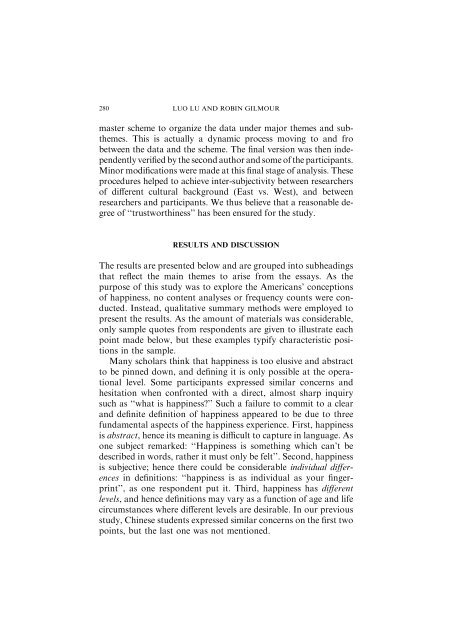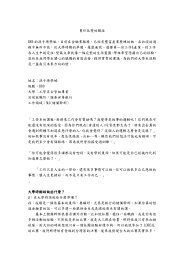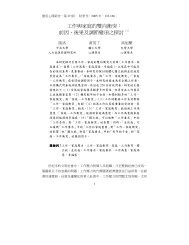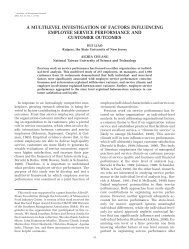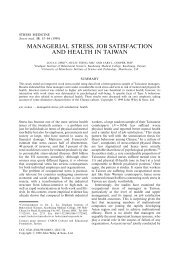CULTURE AND CONCEPTIONS OF HAPPINESS: INDIVIDUAL ...
CULTURE AND CONCEPTIONS OF HAPPINESS: INDIVIDUAL ...
CULTURE AND CONCEPTIONS OF HAPPINESS: INDIVIDUAL ...
You also want an ePaper? Increase the reach of your titles
YUMPU automatically turns print PDFs into web optimized ePapers that Google loves.
280LUO LU <strong>AND</strong> ROBIN GILMOURmaster scheme to organize the data under major themes and subthemes.This is actually a dynamic process moving to and frobetween the data and the scheme. The final version was then independentlyverified by the second author and some of the participants.Minor modifications were made at this final stage of analysis. Theseprocedures helped to achieve inter-subjectivity between researchersof different cultural background (East vs. West), and betweenresearchers and participants. We thus believe that a reasonable degreeof ‘‘trustworthiness’’ has been ensured for the study.RESULTS <strong>AND</strong> DISCUSSIONThe results are presented below and are grouped into subheadingsthat reflect the main themes to arise from the essays. As thepurpose of this study was to explore the Americans’ conceptionsof happiness, no content analyses or frequency counts were conducted.Instead, qualitative summary methods were employed topresent the results. As the amount of materials was considerable,only sample quotes from respondents are given to illustrate eachpoint made below, but these examples typify characteristic positionsin the sample.Many scholars think that happiness is too elusive and abstractto be pinned down, and defining it is only possible at the operationallevel. Some participants expressed similar concerns andhesitation when confronted with a direct, almost sharp inquirysuch as ‘‘what is happiness?’’ Such a failure to commit to a clearand definite definition of happiness appeared to be due to threefundamental aspects of the happiness experience. First, happinessis abstract, hence its meaning is difficult to capture in language. Asone subject remarked: ‘‘Happiness is something which can’t bedescribed in words, rather it must only be felt’’. Second, happinessis subjective; hence there could be considerable individual differencesin definitions: ‘‘happiness is as individual as your fingerprint’’,as one respondent put it. Third, happiness has differentlevels, and hence definitions may vary as a function of age and lifecircumstances where different levels are desirable. In our previousstudy, Chinese students expressed similar concerns on the first twopoints, but the last one was not mentioned.


